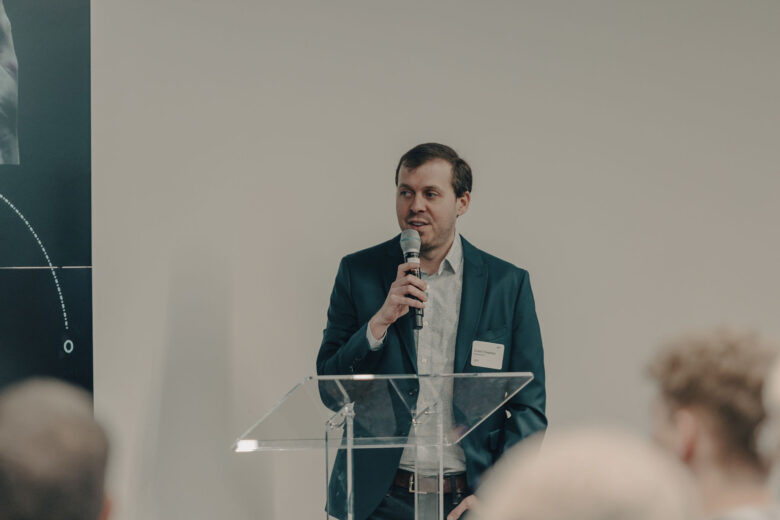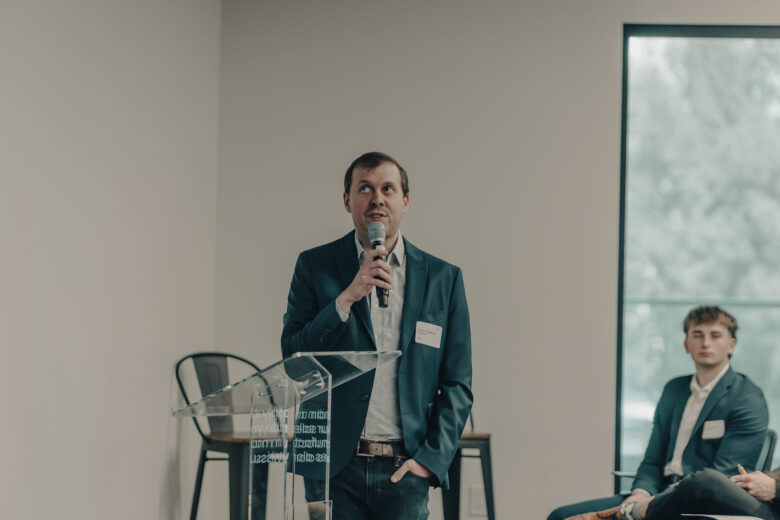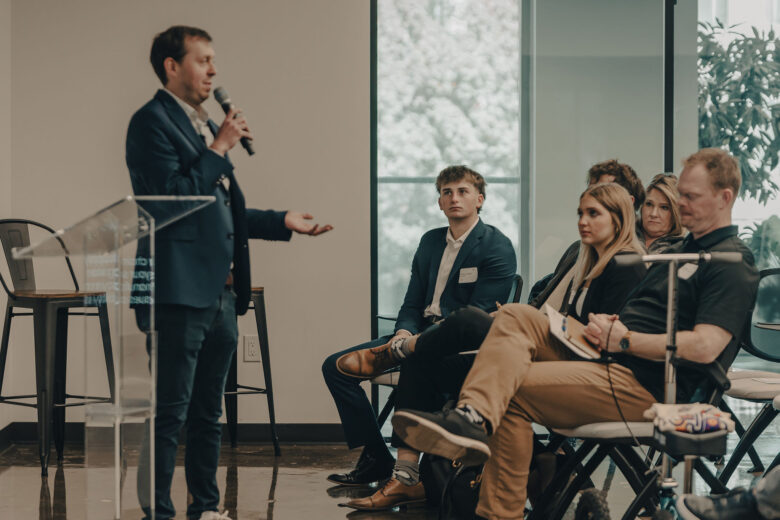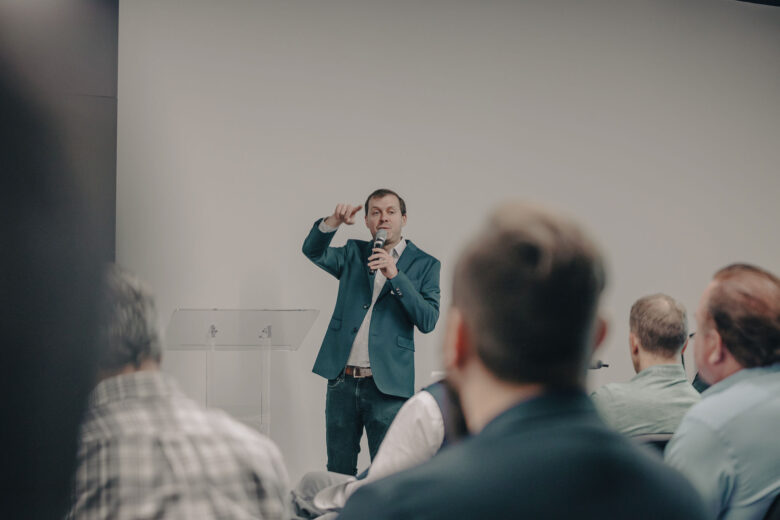Blog
From Validating an Idea to Building V1 — An Engineer’s Guide to Startups
- Blog,
Hardtech is thriving in Indiana. Founders across the state are proving that innovation is built, not imagined. With over $20 million invested in hardware startups and more than $200 million leveraged in co-investment, Elevate Ventures continues to champion the builders shaping the state’s future.
This session opened the HardTech & Product Workshop, setting the tone for a day dedicated to real world insights from Indiana’s leading engineers and founders. Grant Chapman, CEO of Glassboard, shared a detailed, experience driven look at the process of turning ideas into manufacturable products. As both a mechanical engineer and entrepreneur, Chapman has spent his career guiding startups and established companies from concept to commercialization. His session provided a blueprint for founders balancing creativity with precision, a reminder that engineering excellence must always be paired with market understanding.
Session Overview
Grant’s presentation, “From Validating an Idea to Building V1: An Engineer’s Guide to Startups,” outlined the disciplined approach required to de risk early stage product development. He described how hardware founders often face an uphill climb: long development cycles, capital intensive prototypes, and a delicate balance between ambition and pragmatism.
“The first version of your product isn’t supposed to be perfect,” he noted. “It’s supposed to prove your hypothesis.”
The conversation centered around clarity and control, showing how defining the problem early prevents expensive missteps later. Chapman explained that before teams ever open CAD software or 3D print a prototype, they should be obsessed with the fundamentals: user pain points, core functionality, and measurable success criteria.
He highlighted a common mistake among early stage engineers: building toward what’s possible instead of what’s valuable. The most successful products, he argued, are the result of intentional trade offs, choosing what to leave out is just as important as what to include.
Chapman also emphasized team composition and communication as critical success factors. “You can have the smartest engineer in the world,” he said, “but if design, marketing, and manufacturing aren’t aligned, you’re going to waste time and capital.”
The audience, made up of founders, product designers, and investors, engaged in an open discussion on prototyping speed versus accuracy. Chapman’s answer was simple but powerful: iterate fast, but always test with purpose. Every version should answer a specific question, not just make the product look better.
Key Takeaways
- Start with a plan, not a prototype. Clarity of purpose beats speed of execution. Before building anything, define the problem, your target user, and how you’ll measure success.
- De-risk every stage. Each prototype should remove one unknown, technical, market, or operational, rather than add complexity.
- Test cheaply and often. Use low fidelity mockups, simple 3D prints, or even virtual renderings to validate assumptions before committing time or capital.
- Know your V1 purpose. Version one isn’t about perfection; it’s about proof. Focus on demonstrating desirability and feasibility.
- Assemble a multidisciplinary team early. Cross functional collaboration between design, engineering, and business leads to stronger, more efficient development.
- Document your journey. Each iteration teaches you something new. Record what worked, what didn’t, and why, it builds both credibility and clarity for investors.
- Embrace flexibility. Hardware timelines rarely unfold as planned. Teams that pivot quickly based on data survive; those who don’t, stall.
Why It Matters
Indiana has a long legacy of building things that last, automobiles, medical devices, advanced materials, and now, emerging hardtech startups. Chapman’s presentation reminded attendees that great ideas require both discipline and resilience. The hardware founders emerging across the state are proving that Indiana’s engineering culture, manufacturing infrastructure, and venture capital alignment create a uniquely fertile environment for innovation.
For Elevate Ventures, supporting founders like these goes beyond capital. It’s about creating the conditions for them to thrive, from funding early prototypes to connecting them with partners who understand what it takes to go from a sketch to a shipped product.
Presentation Slides
Explore Grant Chapman’s full presentation deck from this session:
Closing Reflection
Chapman’s message was clear: hardware success does not start in the factory. It starts with an engineer who learns to think like an entrepreneur and a founder who learns to think like an engineer. Across Indiana, those worlds are converging, and it’s this blend of creativity, precision, and collaboration that will define the state’s next generation of innovators.
Explore the HardTech & Product Workshop Photo Gallery
Featured News
-
What 2026 Holds for Innovation, Capital, and Startup Momentum in Indiana
Read More -
Independent Audit Clears Elevate Ventures
Read More -
20 Episodes In: A Trip Down Memory Lane with Innovate or Evaporate
Read More -
Economic Outlook for 2026
Read More -
The State of Venture Capital in 2026
Read More -
2025 SaaS Benchmarks Report
Read More



